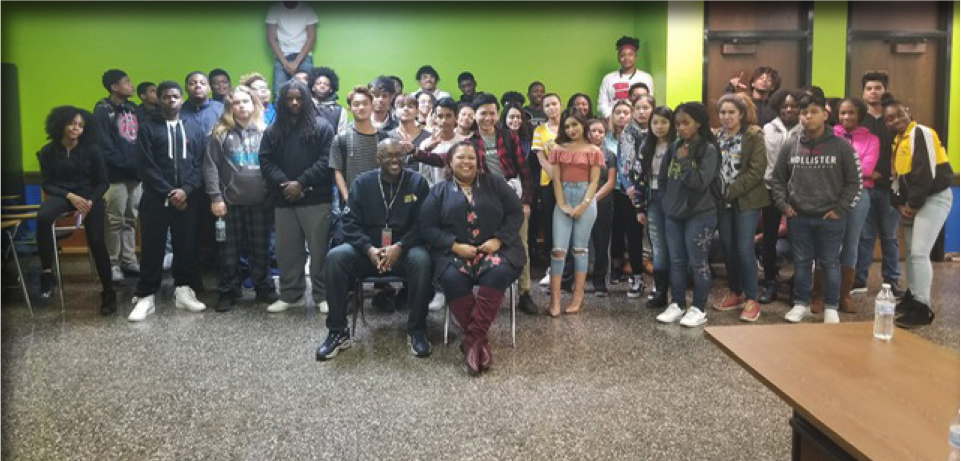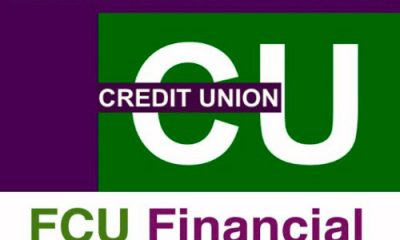Business
The Importance of Teaching Financial Literacy, and Credit to Teens and Young Adults

Financial Literacy has always been a topic that I quickly realized was not being taught but necessary in my community. It was not taught to my mother, who was a college graduate, nor was it a topic of discussion among anyone in my family. Once I became educated about Financial Literacy and Credit, I began to teach my own community. I also vowed to make sure that my own children, twins, would be better prepared than I was to face adulthood and not fall into an early life abyss of debt.
In today’s fast-paced and complex world, it is necessary for all young people to be equipped with the essential skills and knowledge to navigate the financial landscape successfully. Teaching financial literacy and credit education to teens and young adults is of utmost importance. Having young adults, myself, I am glad that I made these decisions to teach them early on about their finances and how to understand money.

Financial literacy refers to the ability to understand and use various financial skills, including personal financial management, budgeting, saving, investing, and understanding financial products and services. It is essential for all young people to develop a strong foundation in financial literacy to make informed decisions about money, both in their personal lives and in the broader economy.
Expanding one’s knowledge in financial literacy, credit management, and wealth is vital in molding young adults for success, especially since they are in the pivotal phase of transitioning into adulthood. The importance of understanding the value of money, spending wisely, making investments, and boosting their credit scores has never been more pressing.
The younger generation needs to be educated on the significance of having good credit, as it determines their eligibility for loans, mortgages, and other financial opportunities. With proper financial education, young adults have the necessary tools to make informed financial decisions and investments, providing them with a solid foundation for long-term financial stability and growth.
Introducing financial literacy and credit education at a young age has numerous benefits. Firstly, it fosters a sense of responsibility and accountability for one’s financial decisions. By learning about money management early on, young people develop good habits that can last a lifetime. Secondly, early education in these areas can help prevent financial mistakes and setbacks later in life. By understanding the consequences of poor financial choices, young adults are more likely to make informed decisions and avoid unnecessary debt or financial hardship.

It is crucial for parents and educators to emphasize the importance of financial literacy from a young age. By doing so, we are helping to set up young adults for success in managing their finances in the future. Providing children with the necessary tools and resources to learn about financial literacy can help them create a strong financial foundation early on in life. This could include teaching them about budgeting, saving, and investing.
Without a strong financial foundation, it is easy for young adults to make costly mistakes that can have long-lasting effects. By prioritizing financial literacy education, we are equipping our children with the skills and knowledge they need to make informed financial decisions and achieve financial stability in the future.
Having a solid financial grounding from a young age can have a significant impact on a person’s life. Investing in financial education can play a vital role in providing young adults with the knowledge and skills they need to make smart decisions about their money. By acquiring this education, they can learn how to create and stick to a budget, save for both the short and long-term, and start building a strong credit history.

All these skills can help them avoid getting into unnecessary debt and enable them to live within their means. Furthermore, by learning early on how to manage money, young adults can take full advantage of investment opportunities while minimizing risks and maximizing gains. Therefore, investing in financial education for young adults may well be the best investment parents and educators can make in their future.
Credit plays a significant role in our lives, as it determines our ability to borrow money, secure loans, and make important purchases such as a car or a home. I started my children’s journey to building credit when they were 16 years old. I added them as authorized users to one of my major credit cards. When they turned 18, they had 2 years of excellent credit history, which earned them good credit. Unfortunately, many young people enter adulthood without a clear understanding of how credit works and the potential consequences of misusing it. By teaching teens and young adults about credit, we empower them to make responsible financial decisions, build a positive credit history, and avoid falling into debt traps.
Furthermore, I believe that teaching financial literacy and credit education to young people promotes economic empowerment and reduces the wealth gap. This is why from the age of 10, in the 5th grade, until they were seniors in high school, I offered their schools a free Financial Literacy program for their students. Our program was designed for children aged 8-18 years old. By equipping individuals with the knowledge and skills to make sound financial decisions, we can empower them to break free from the cycle of poverty and create a better future for themselves and their families.

To effectively teach financial literacy and credit education to teens and young adults, it is crucial to make the learning process engaging and interactive. Traditional classroom lectures may not be as effective as hands-on activities, simulations, and real-life examples. By incorporating practical exercises, such as creating a budget, investing in a virtual stock market, or analyzing case studies, young people can apply the knowledge they acquire and develop a deeper understanding of financial concepts.
To ensure the widespread adoption of financial literacy, and credit education, collaboration between schools, parents, and financial institutions is essential. Schools can integrate these topics into their curriculum, providing students with structured and comprehensive education. Parents can reinforce these lessons at home, encouraging responsible financial behavior and fostering open conversations about money. Financial institutions can play a vital role by offering educational resources, workshops, and partnerships to support financial literacy initiatives.
In conclusion, teaching financial literacy, credit, and wealth education is essential for teens and young adults in today’s world. It is crucial for their long-term financial well-being and not only ensures a secure future but also empowers them to make smart decisions and investments. By providing them with the necessary tools and resources, we can help them avoid financial pitfalls, create a strong financial foundation, and set themselves up for success. Having a good understanding of finances enables individuals to make informed choices concerning investments, loans, and savings. It also allows them to navigate financial situations with confidence and ease.
Moreover, acquiring financial knowledge at a young age can lead to better financial habits in the long run, resulting in improved financial stability and reduced debt. In short, financial education is crucial for young adults to attain financial freedom and success. It is our collective responsibility to ensure that the younger generation is prepared to navigate the complex financial landscape they will face as adults. Let us invest in their financial education today for a brighter tomorrow.
By: Joi L. Wilson – ‘The Tax & Credit Queen’ – Owner of JLW Tax & Financial Services.










